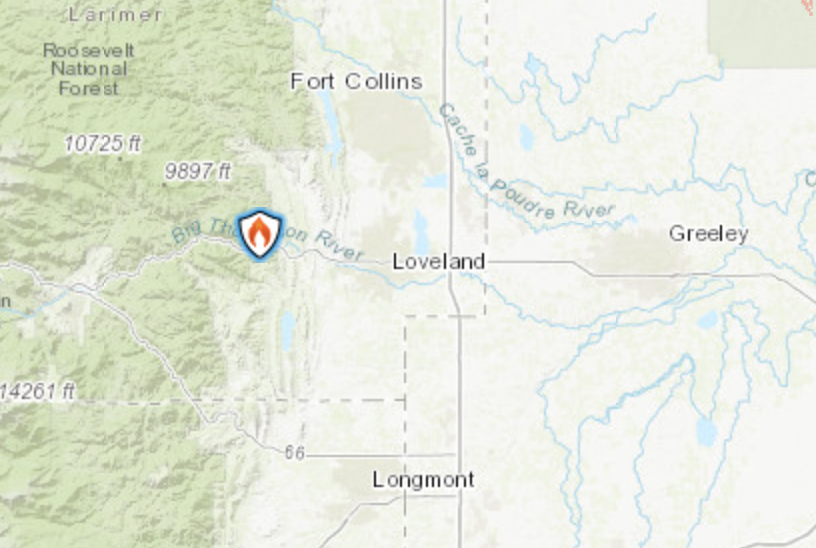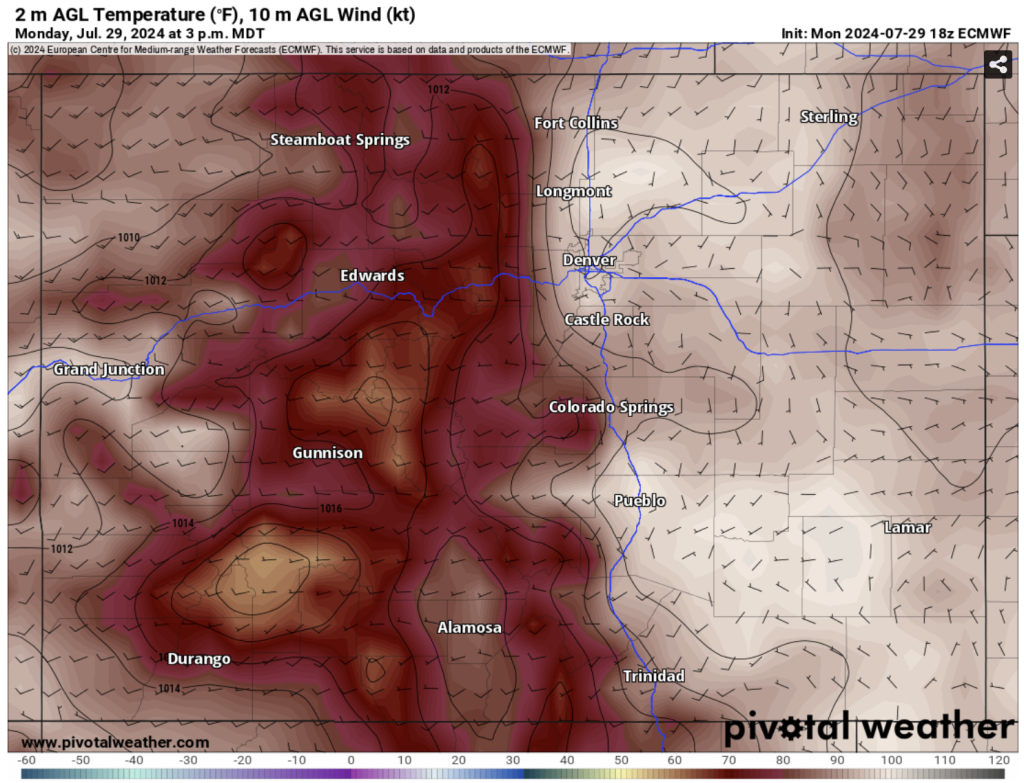As Colorado residents were just beginning to hope for clearer skies, a new wildfire has emerged, casting a smoky haze once more. The Alexander Mountain Fire, a new and rapidly growing wildfire, has ignited just west of Loveland, causing alarm and prompting swift action from local authorities and residents alike.

Rapid Escalation
First reported shortly after 11 a.m. on July 29, 2024, the Alexander Mountain Fire quickly expanded, growing to an alarming 864 acres by 6 p.m. the same day. Located north of Highway 34 and west of Loveland, the fire’s swift spread has necessitated multiple evacuation orders from the Larimer County Sheriff’s Office. The fire is currently burning almost entirely on National Forest lands, adding to the complexity of containment efforts.
Evacuation Efforts and Centers
In response to the rapidly evolving situation, several evacuation centers have been established to provide refuge for displaced residents. Namaqua Elementary at 209 N Namaqua Ave, Loveland, is serving as an initial evacuation center, transitioning to Foundations Church at 1380 N Denver Ave, Loveland, by 5 p.m. Estes Park Community Center at 1125 Rooftop Way, Estes Park, is also available for evacuees.
For those with large animals, The Ranch Events Center & Complex at 5400 Arena Cir, Loveland, is accommodating animal evacuations, ensuring that pets and livestock are safe during this critical time.
Command and Control
The Loveland Fire Authority was first on the scene, with the Larimer County Sheriff’s Office assuming initial command of the fire. The USDA Forest Service is expected to take over command on July 30, with a complex incident management team already ordered to handle the situation. This coordinated effort is crucial as the fire remains 0% contained, posing a significant threat to the surrounding areas.
Weather Conditions and Fire Risks
Compounding the challenge of fighting the fire are the record-high temperatures and windy conditions. On July 29, Denver tied a record high of 99 degrees, previously set in 2005, 1995, and 1877. Forecasts predict similar conditions on Tuesday, with temperatures soaring to around 100 degrees. Breezy conditions in the foothills and mountains are expected, leading to elevated fire weather concerns. A slight respite is anticipated on Wednesday, with temperatures dropping by about 5 degrees.

The cause of the Alexander Mountain Fire remains undetermined, adding another layer of complexity to the ongoing firefighting efforts. Investigators are working diligently to uncover the origin of the blaze, but the priority remains containment and ensuring the safety of residents and firefighters.
As the Alexander Mountain Fire continues to burn, the importance of community vigilance and cooperation cannot be overstated. Residents in affected areas should stay informed through local news and official channels, heed evacuation orders promptly, and take necessary precautions to protect their homes and families.
In a year already marked by significant wildfire activity, the emergence of the Alexander Mountain Fire serves as a stark reminder of the persistent threat posed by wildfires in Colorado. As firefighting teams battle the blaze, the resilience and preparedness of the community will be critical in navigating this latest challenge.
Source: Incident Information INCI Web
